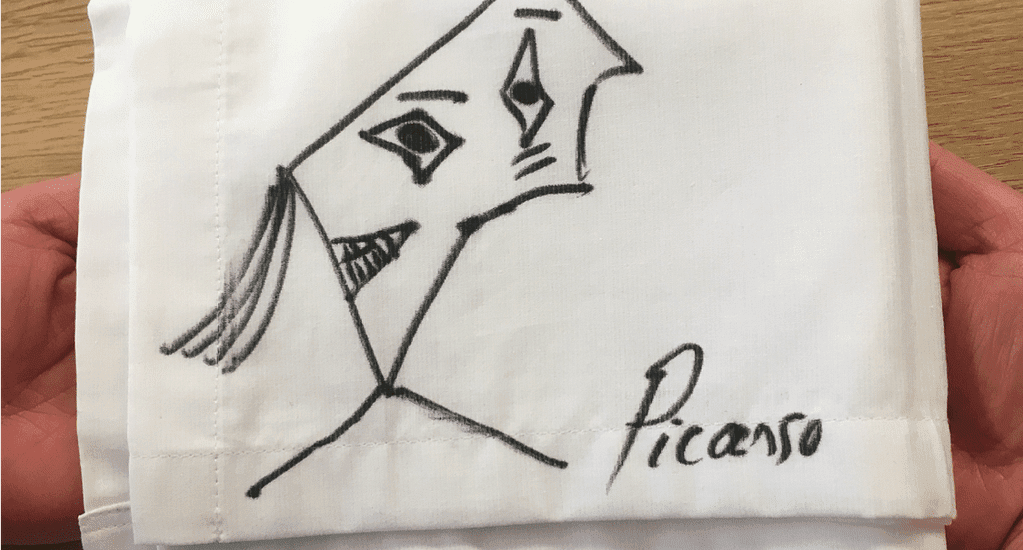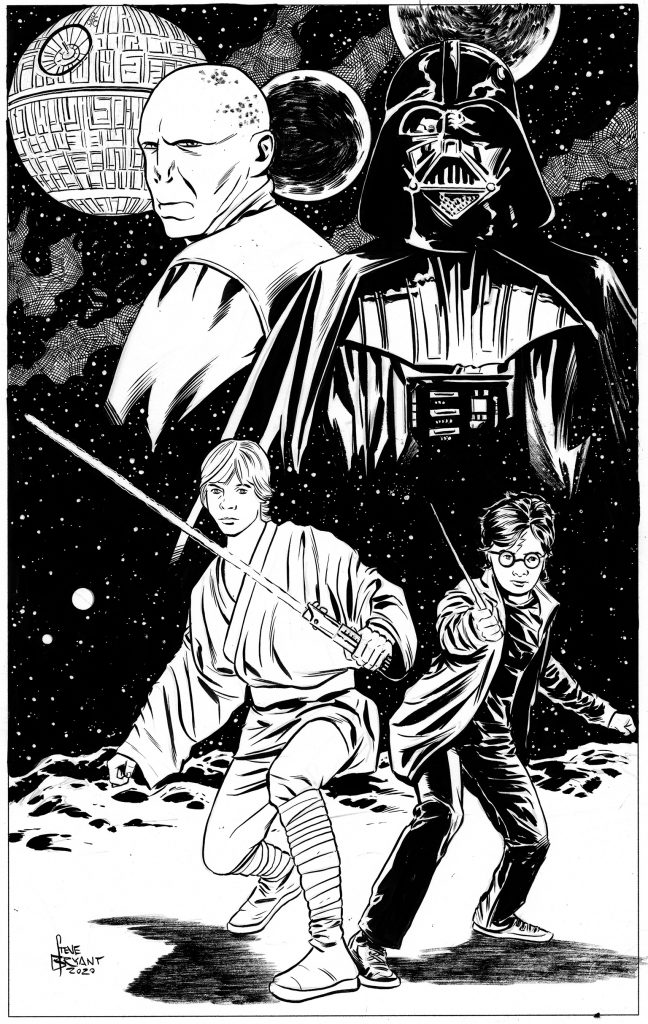Okay, maybe not worthless, but I got your attention, didn’t I?
At best, an idea is a sketch. But realistically, it’s more like a doodle. And unless you’re Pablo Picasso, no one’s lining up for your doodles.

An idea doesn’t have plot, or characters, or conflict, or resolution. It’s a high concept, or a vague idea for a character, or a title. As good a concept, character idea, or title that you have, it’s not worth reading.
Yet.
I’m getting ahead of myself. Why is it worthless? Because everyone has ideas. I know, because at every convention I attend, I meet someone who’s convinced that they will revolutionize fiction, or comics, or film/television with their brilliant idea. The mechanic who fixes your car has ideas. So does the cashier at the grocery story. Or the person sitting next to you in class. Or the guy that cut you off in traffic. Everybody.
Everybody has ideas.
I know plenty of comic creators who see similar ideas in movies, tv, or other comics and immediately shout that they’ve been ripped off. They may have been—I can’t speak for every instance—but it’s more likely that someone else on this planet filled with millions of people thought of something similar. It happens. A lot.
The reality is that ideas are plentiful.
Here’s an idea: Young person is gifted with tremendous power/abilities and is burdened with the responsibilities that go along with it.
Am I talking about Harry Potter? Or Frodo? Or Percy Jackson? Or Buffy the Vampire Slayer? Or Luke Skywalker? Or Spider-Man? And, if it’s Spider-Man, are we talking about Peter Parker or Miles Morales?

Or a baby is sent away from certain death and grows up to inspire those around him. Is it Superman? Or Moses?
People don’t fall in love with concepts. They make connections with characters. They try to anticipate what’s next on the journey. They celebrate when there’s a satisfying resolution.
An idea doesn’t become a beloved story without these things.
Let’s say you have a man who’s a monster hunter. Now what? Why does he hunt monsters? Does he do it solo? Is there a larger organization that he works with/for? Are they trustworthy? Are the monsters unintelligent? If not, are they organized, part of a cabal? Does your monster hunter have loved ones? How do they feel about him hunting monsters?
Or maybe you have a woman who’s an assassin? Why does she do what she does? Is she part of an organization or freelance? Whether she’s part of a larger organization or an independent operator, does she have a moral code about her targets? Or is she broken and it’s all just a job—if she’s broken, did the job do it to her, or did she seek out the job because of that?
And on and on. It’s this stuff that makes your characters and their world come to life.
And brilliant character designs, too. Comics are a visual medium, after all.
How does your character dress? Is your monster hunter armed to the teeth or do they have a go-to weapon? Is your assassin nondescript or flamboyant? The visual choices your characters make are further demonstrations of who the character is. And those designs, and the designs of their associates and the world around them, are what make your ideas breathe.
And that’s not even considering how shape language defines a character’s personality, visually. Or what their silhouette tells the reader, or their body language, or various costuming details.
All of these elements combine to refine and expand an idea into something worth reading, watching, or playing.
Until then, your idea is worthless.
